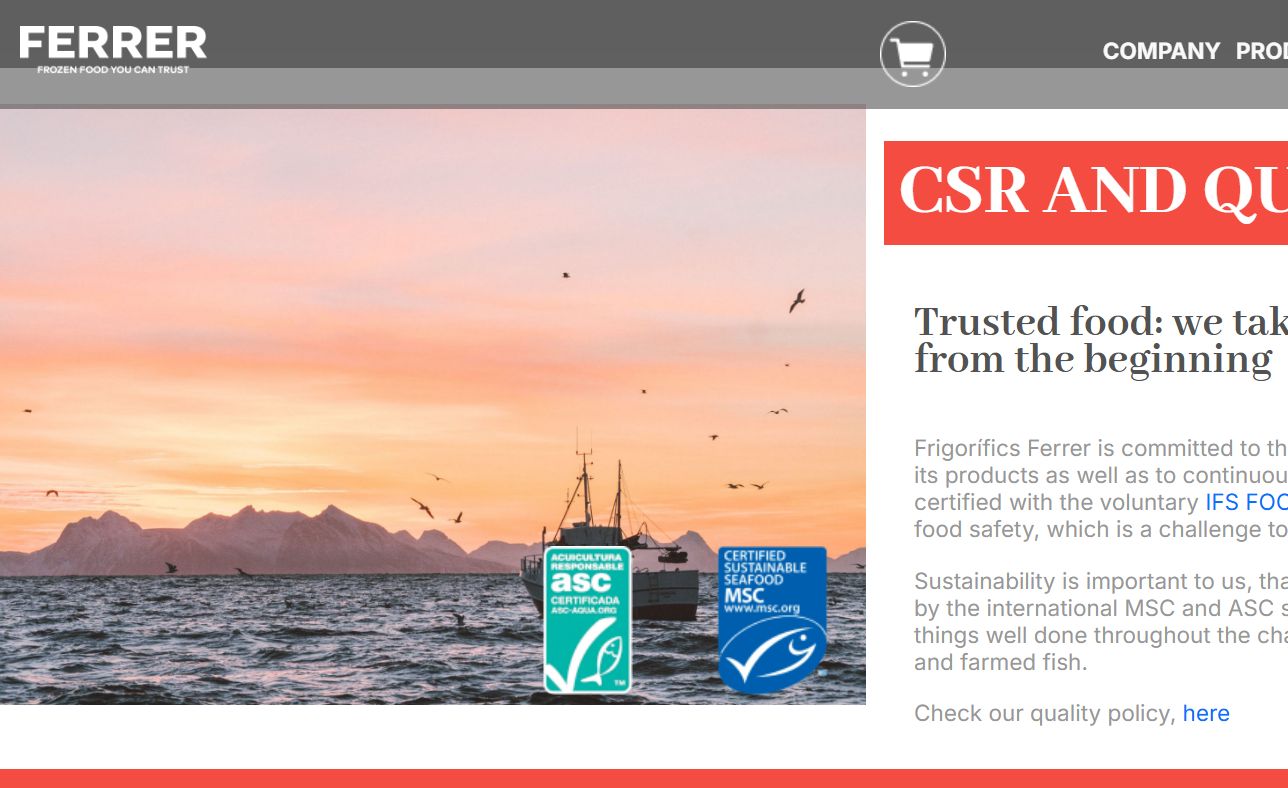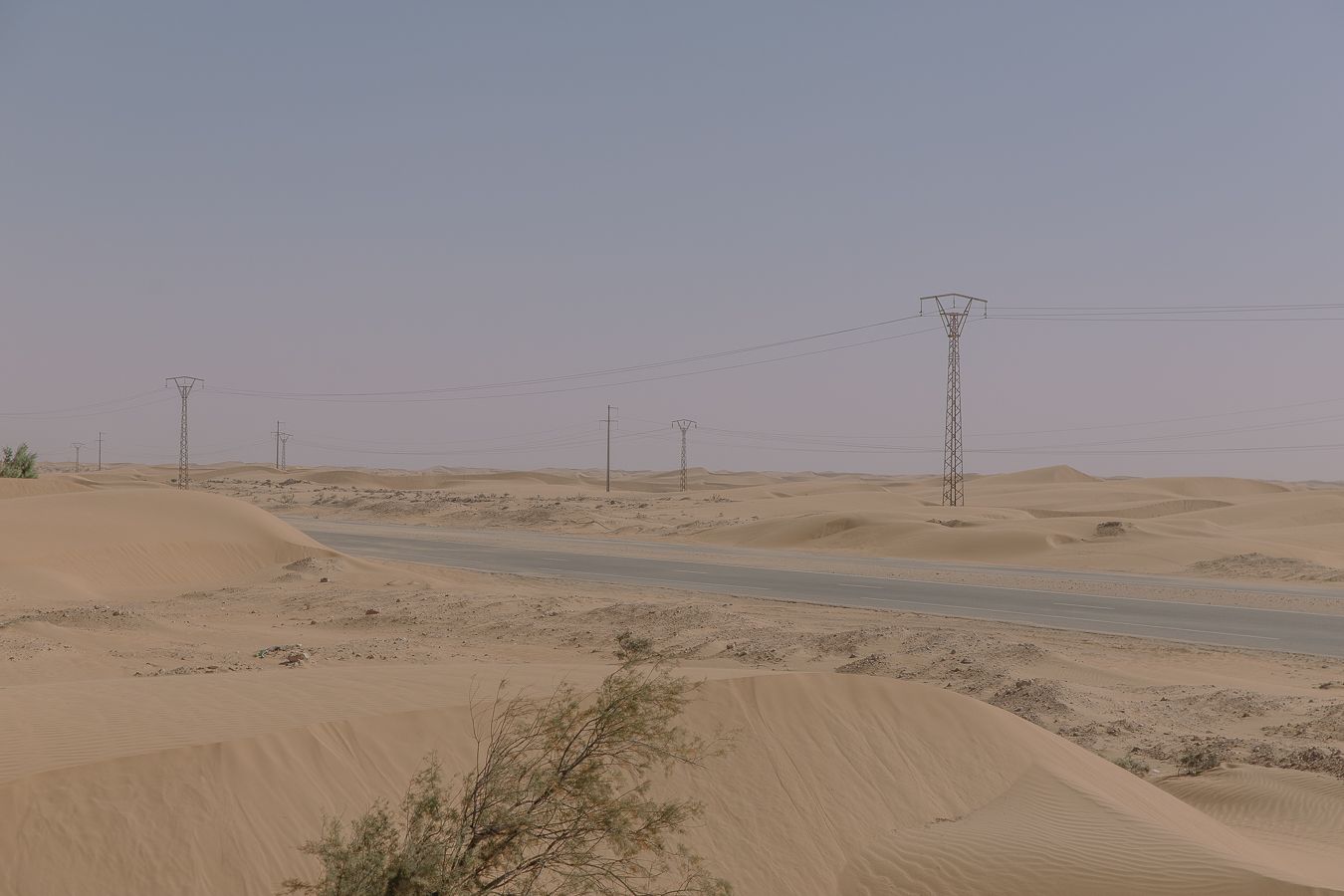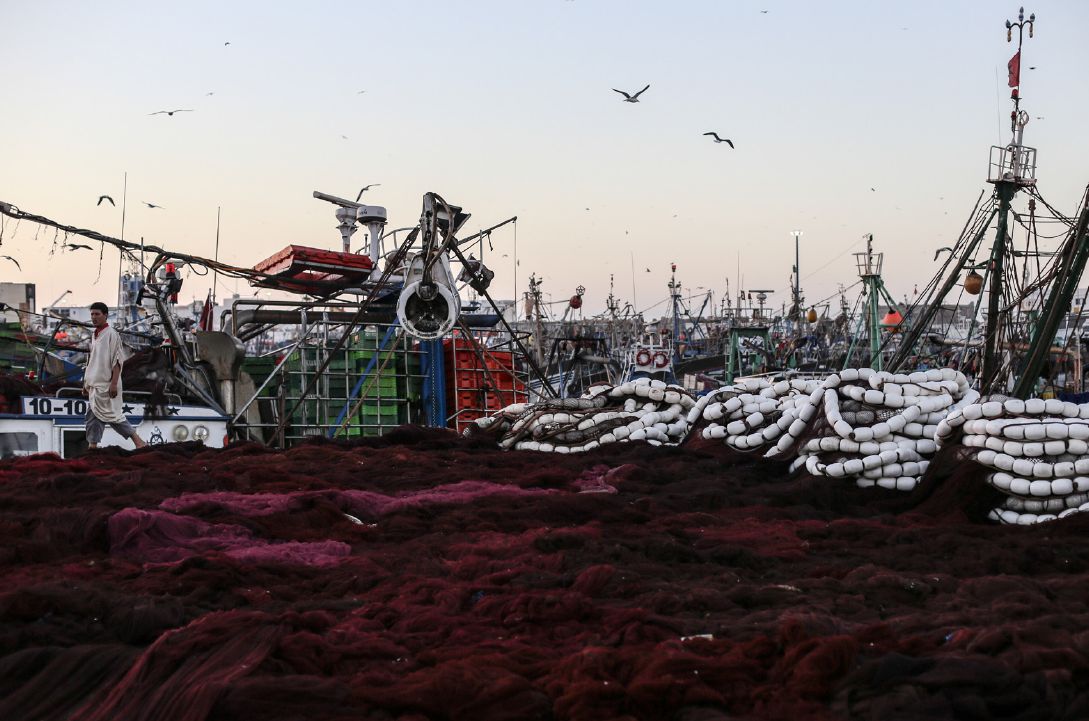
One of China's giant state-owned fishing firms, Shanghai Fisheries General Corp, is looking to become a major presence in "Moroccan waters".
According to Seafoodsource, Pu Shaohua, company director of Shanghai Fisheries General Corp (SFGCG) sees "lots of opportunities" in Moroccan waters and is planning to dispatch more vessels to the firm's Agadir crew, as part of what the firm calls its "Moroccan Project." Pu vowed to "promote our company's development capacity in Moroccan waters" by adding more vessels.
The Chinese fishing industry is particularly interested in securing supplies of sardines, tuna and other cannery favorites. China's fishing sector has made no secret of its intention to build a canning industry to compete with Thailand and to match export and a growing domestic demand.
China's ambition seems to fit well with Morocco's aspiration to expand its fish exports and to further its political agenda on Western Sahara through trade deals.
Morocco invaded Western Sahara in 1975 and has occupied large parts of the territory ever since, thereby defying international law and basic human right standards. Morocco's exploitation of Western Sahara's ample natural resources - including the fish grounds - are both financially and politically interesting for Morocco: trading in resources from Western Sahara with the government of Morocco lends an unfortunate sign of legitimacy to Morocco's occupation of the territory.
As Morocco's own fish stocks are over-exploited, there is every chance that the Chinese trawlers will soon become a presence in the waters of Western Sahara, not Morocco.
The spokesman at the Moroccan National Federation of Seafood Processing and Valorization Industries (FENIP) explained to Seafoodsource that the quality of Moroccan seafood and a track record of supplying E.U. markets makes Moroccan product an easy sell to China.
Seafoodsource states that Morocco plans to expand its seafood exports from 1.03 (2010) to 1.6 million MT in 2020 while also ramping up earnings from the sector from USD 1.5 billion (EUR 1.1 billion) in 2010 to USD 3.1 billion (EUR 2.3 billion) by 2020.
An increasing percentage of catches are however landed in occupied Western Sahara. The Saharawi people - the native inhabitants of the country, living under Moroccan occupation or in Algerian refugee camps - don't benefit from the exploitation of their country's resources.
MSC’s name misused to whitewash controversial fish trade
The certification scheme MSC guarantees that no fisheries in Western Sahara are certified. But Spanish food distributors give another impression.
Morocco pushes enormous green hydrogen plans in occupied Western Sahara
The Moroccan government has confirmed several green hydrogen projects totalling 20 GW of renewables and up to 8 million tonnes of derivatives - many planned in occupied Western Sahara.
IFS Food’s secret: errors fuel food fraud
IFS Food - a label meant to guarantee protection against food fraud - facilitates a practice of food fraud.
Moroccan minister's windmills arriving occupied Western Sahara
Windmill components for yet another controversial windfarm are now arriving in the occupied territory.



